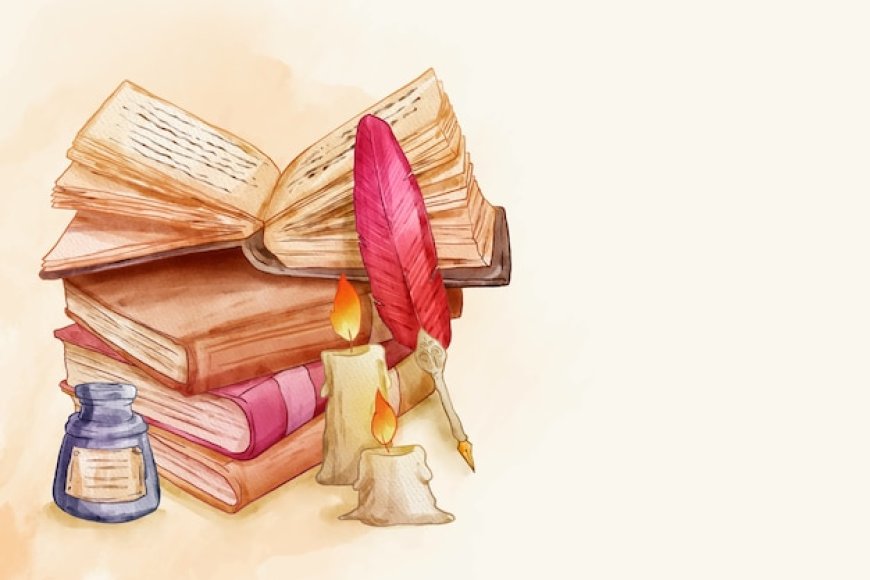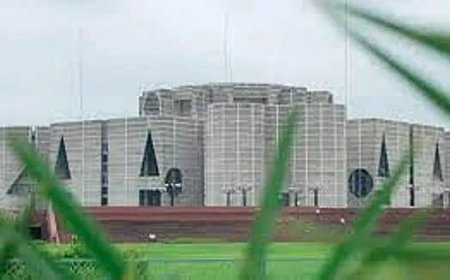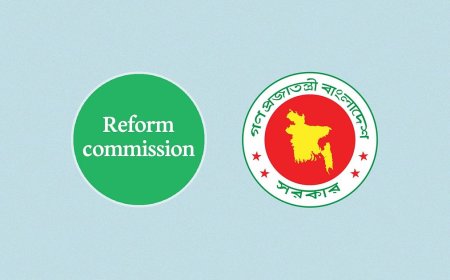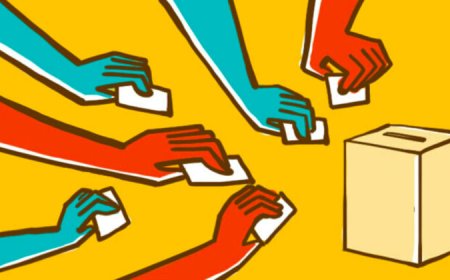The Interconnected Tapestry of Politics, Business, and Humanity: A Case for the Importance of Literature and Philosophy
The Interconnected Tapestry of Politics, Business, and Humanity: A Case for the Importance of Literature and Philosophy

From the philosophical dialogues of Socrates to the tumultuous leaderships of modern figures like Donald Trump and Sheikh Hasina, politics and business have undeniably shaped the course of human history. These two forces, intricately interwoven, influence not only governments and markets but also societal values, ideologies, and even religious beliefs. The commodification of faith, the monetization of human emotions, and the manipulation of truth for power serve as stark reminders that money and politics often overshadow ethical considerations.
However, in the midst of this turbulence, literature and philosophy stand as pillars of empathy, critical thinking, and creativity. These fields challenge the dominance of materialism and offer a vision of humanity that transcends the immediate rewards of politics and business.
Political Economy of History: From Socrates to the Modern Era
Socrates, the foundational figure in Western philosophy, was executed for challenging the political and moral order of Athens. His trial, documented by Plato, symbolizes the clash between truth-seeking and political pragmatism. Socrates’ unwavering commitment to ethical inquiry threatened the power structures of the time, a tension between politics and morality that continued through history—from Machiavelli’s The Prince, which revealed the harsh pragmatism of power, to the colonial era, when politics and business were intertwined to exploit vast regions, especially Africa and Asia.
In recent decades, figures like Donald Trump have blurred the lines between politics and business, exemplifying how personal wealth and political power can merge to create a governance model driven by self-interest and corporate goals. Similarly, Sheikh Hasina’s regime in Bangladesh reveals the complexities of political dominance, where economic growth often coexists with accusations of corruption and authoritarianism. In both instances, the prioritization of money and power undermines ethical governance, often marginalizing the voices of the oppressed.
Commodification of Faith and Morality
In today’s interconnected world, religion—a traditionally sacred domain for moral and spiritual guidance—is increasingly entangled with commerce and politics. Televangelists accumulate wealth by commodifying faith, while political leaders exploit religious sentiments to garner support and suppress dissent. Marx’s view of religion as the “opium of the people” resonates deeply here—not because religion is inherently corrupt, but because it is often manipulated by opportunistic individuals for political and financial gain.
The Antidote: Literature and Philosophy as Beacons of Compassion
Against this backdrop, literature and philosophy offer a refuge, fostering empathy, moral imagination, and critical reflection. These disciplines inspire individuals to challenge the status quo and envision alternative ways of being. Romantic poets like Wordsworth and Shelley critiqued the dehumanizing effects of industrial capitalism, calling for a return to nature and simplicity. Writers like George Orwell and Albert Camus, in the 20th century, used fiction to highlight the horrors of political oppression and existential struggles.
Philosophy also deepens our understanding of ethical dilemmas. Immanuel Kant’s categorical imperative, for instance, urges individuals to act in ways that could be universally applied, prioritizing morality over expediency. Such teachings counter the narrow focus on power and wealth, emphasizing responsibility and ethical action.
How Fiction and Poetry Inspire Out-of-the-Box Thinking
Fiction and poetry have a unique capacity to transcend reality, offering readers new perspectives on life. As John Keating, the teacher from Dead Poets Society, famously said, “We don’t read and write poetry because it’s cute. We read and write poetry because we are members of the human race.” Poetry distills human emotions, struggles, and aspirations, allowing readers to experience the world through others' eyes. This cultivates empathy and challenges rigid thought patterns.
For example, in Things Fall Apart by Chinua Achebe, readers see the devastating impact of colonialism through the eyes of an African protagonist. Similarly, dystopian novels like The Handmaid’s Tale by Margaret Atwood and 1984 by George Orwell encourage readers to critique authoritarianism and social injustices. These works provide the intellectual tools necessary to resist the influence of corrupt politics and commercial greed.
The Transformative Power of Literature
Research in neuroscience supports the idea that literature enhances empathy. A 2013 study by Kidd and Castano in Science found that readers of literary fiction performed better on tests of empathy and social perception compared to those who read non-fiction or popular fiction. This is because literary fiction engages readers in complex social situations, requiring them to adopt diverse viewpoints.
Moreover, poetry, with its emphasis on metaphor and imagery, fosters creative thinking. Psychologist Keith Oatley’s research suggests that engaging with fiction enhances the “theory of mind”—the ability to understand others’ mental states—thereby promoting interpersonal understanding.
Literature as a Catalyst for Social Change
Throughout history, literature has been a driving force for social and political change. Harriet Beecher Stowe’s Uncle Tom’s Cabin was instrumental in galvanizing the abolitionist movement in the United States, while Gabriel García Márquez’s One Hundred Years of Solitude explored the socio-political complexities of Latin America. These works demonstrate that literature not only reflects society but also has the power to reshape it by inspiring moral reflection and collective action.
Why We Need More Poetry in the Modern Era
In an age dominated by data and pragmatism, poetry offers an essential counterbalance. It speaks to the soul, reminding us of love, beauty, and the shared human experience. As Keats wrote, “A thing of beauty is a joy forever.” In an increasingly polarized world, poetry can bridge divides and offer solace. It is no accident that in times of crisis, people often turn to poetry for comfort.
Furthermore, poetry challenges conventional thinking. By breaking linguistic norms and embracing ambiguity, it encourages readers to think beyond binary oppositions. This capacity for nuanced thinking is crucial in addressing the complex issues of the modern world, from climate change to social inequality.
The Role of Literature in Cultivating Humane Leaders
The study of literature and philosophy can cultivate leaders who prioritize compassion over conquest. Nelson Mandela, who credited literature with sustaining him during his imprisonment, embodied this ideal. His favorite poem, William Ernest Henley’s Invictus, reflected the resilience and moral conviction that guided his leadership. Similarly, Mahatma Gandhi’s philosophy of nonviolence was deeply shaped by literary and philosophical texts, including Tolstoy’s The Kingdom of God Is Within You.
Beyond Politics and Business
While politics and business undoubtedly shape the world, they are not its only determinants. Literature and philosophy remind us of the enduring values of empathy, creativity, and critical thought. They challenge the reductionist worldview that equates success with wealth and power, offering a more humane vision grounded in ethical action and mutual understanding.
As Robin Williams’ character John Keating in Dead Poets Society reminds us: “Medicine, law, business, engineering—these are noble pursuits and necessary to sustain life. But poetry, beauty, romance, love—these are what we stay alive for.” To counter the corrosive effects of politics and business, we must invest in the humanities, nurturing future generations who value good deeds and good sense over material gain. Only then can we hope to create a world where the best aspects of life flourish, reminding us that humanity’s greatest strength lies not in wealth or power, but in its capacity for empathy and imagination.
What's Your Reaction?





















































































